Waste collection in nature
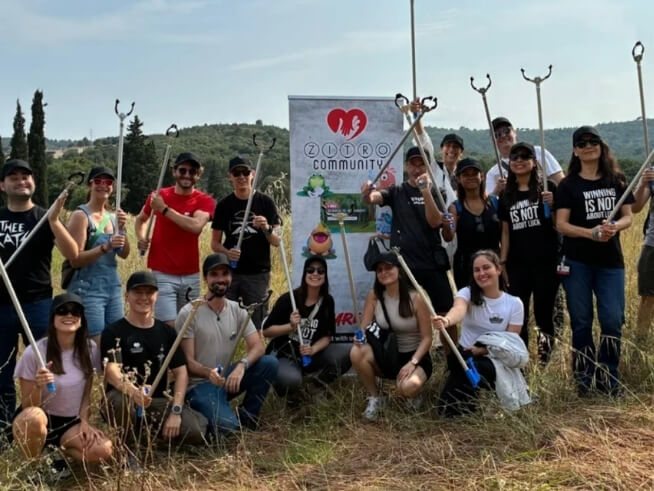






Every minute, the equivalent of a garbage truck full of waste is dumped into nature.
Source: United Nations Environment Programme (UNEP)
Hi!
We are Magda and Martí
We founded Go Zero Waste to promote a zero-waste lifestyle:
• Raise awareness about the importance of waste reduction and the circular economy.
· Organize activities that help to understand the impact we can create on the environment.
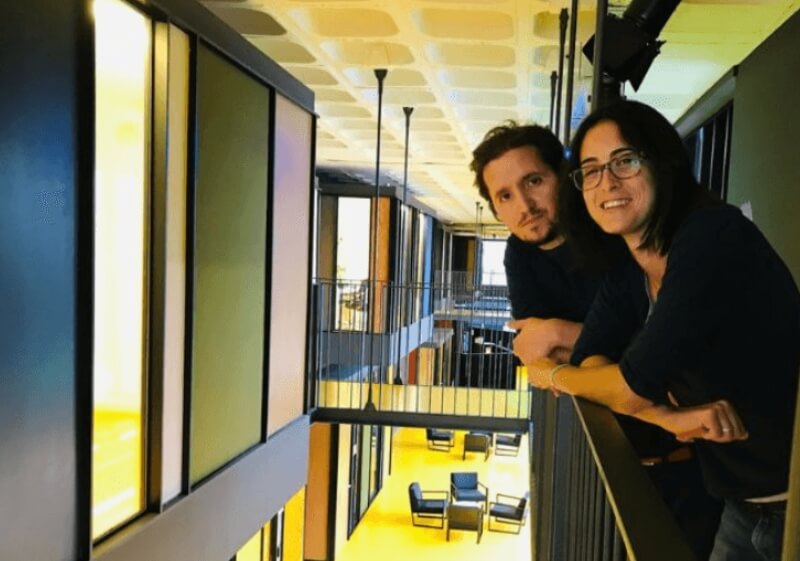
What is a nature cleanup?
Let's take care of nature
A waste collection aims to clean forests, beaches, rivers and parks, preventing waste from damaging ecosystems and biodiversity.
From waste to consciousness
Más que una limpieza, es una experiencia de sensibilización que muestra el impacto de nuestros hábitos de consumo y la importancia de reducir los residuos.
Community action
It is a collective activity that unites people in a common commitment: to promote collaboration and care for our planet.
Why is waste collection in nature important?

Protection of wildlife and biodiversity
We prevent ingestion, entanglement, and conserve animal habitats.

Reduction of soil and water pollution
Over time, some waste releases chemicals and heavy metals and contaminates groundwater.

Making the problem visible
The clean-up days highlight the serious impact of our consumption habits.
What are our goals?
SDG 11 | Sustainability Cities
and communities

Environmental education
Explain the impact of waste, how to prevent it, and promote sustainable habits.
SDG 12 | Production and
responsible consumption
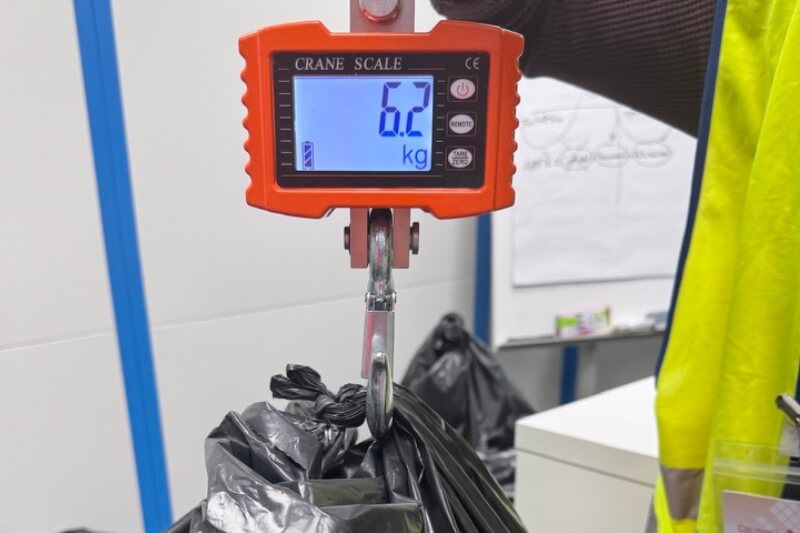
Impact measurement
Record how many kilos were collected and what type of waste they were
SDG 13 | Climate Action

Take action
The real change begins after the waste collection. We provide a clear roadmap to implement from day one.
How does the collection work?
Duration
Waste collection usually lasts 1 hour and 30 minutes. We always allow time for questions from attendees.
Location
The pickup can be done on a beach, river or forest.
Materials and permits
We provide bags, gloves, and tweezers for all participants. We also handle all necessary permits.
Practical approach
It includes an initial explanation of the reason for the activity and how to do it correctly.
Post-collection orientation
We propose actions that participants can take after completing the collection
And above all: have fun!
We learn in a relaxed, fun and easygoing environment.
Impact of our waste collections on nature
+35
Waste collection in nature
+1200
Participants in our collections
+25.000
Kg of waste collected and separated for recycling
Who do we work with for our waste collections in nature?
Companies
- In corporate social responsibility (CSR) programs like we did with Extia.
- As a team building activity to promote sustainable habits in the workplace
- Themed days or green weeks

Cities and towns
- At sustainability fairs
- Citizen workshops
- Within environmental awareness plans
- Within the framework of our waste reduction campaigns , as we did with the Teià town council .
- During the European Week for Waste Reduction, where for one week
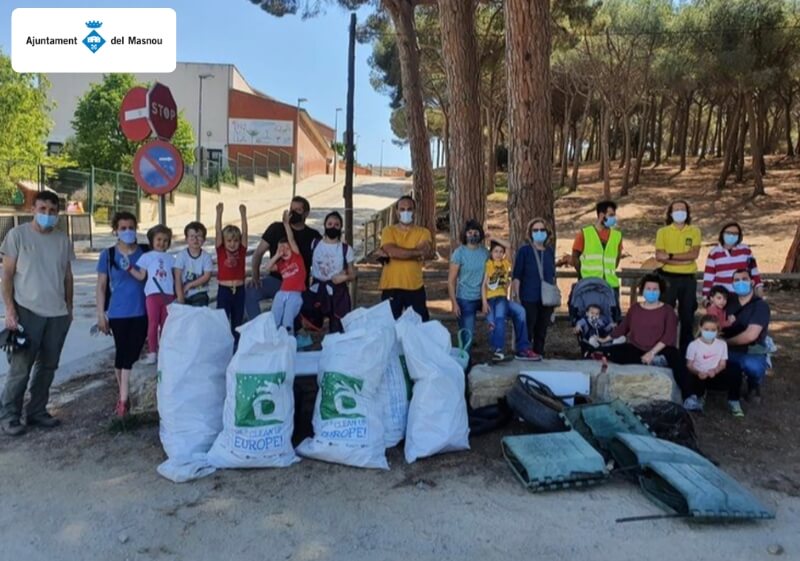
Schools, institutes and universities
- To introduce students to sustainability in a practical way
- During Environment Week
- On days like World Zero Waste Day
- During Waste Prevention Week
- Especially at times just before large amounts of waste are generated, such as at Christmas or during holidays.

Testimonios
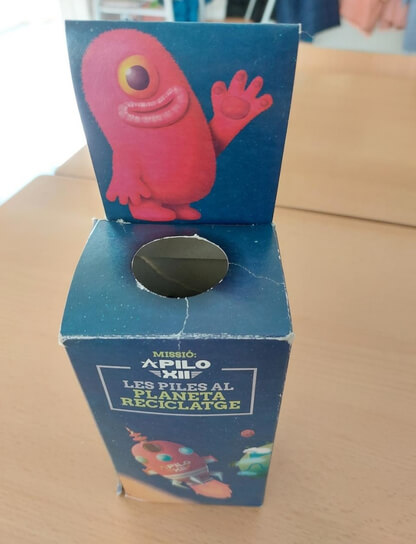



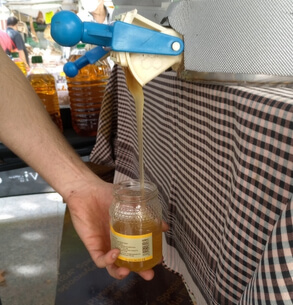



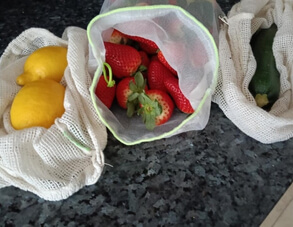



What are the benefits of collecting our waste in nature?
Waste reduction
Waste that can take centuries to decompose is eliminated, protecting soils, rivers, seas and air.
Biodiversity protection
It prevents animals from ingesting plastics or other potentially deadly waste.
Strengthens values
Align values, strengthen bonds, and build a more coherent and sustainable culture.
Encourage participation
We encourage everyone to contribute their knowledge and for us all to share the best practices we implement.
Environmental awareness
It raises awareness among participants about the impact of our habits and how we can instill more sustainable habits.
Post-workshop follow-up
We provide all participants with a guide containing tips and suggestions so they can continue learning after the workshop.
FAQS
A nature cleanup is a collective or individual action aimed at removing litter from natural environments such as forests, beaches, mountains, rivers, or parks. It is an environmental volunteer activity that contributes to environmental protection , public awareness , and the improvement of the environment.
Litter is a term that combines the words trash and nature , and refers to waste generated by humans that has been abandoned in natural environments , such as forests, rivers, beaches, mountains or any outdoor space.
No , no prior knowledge is necessary.
The waste collection activity is designed so that anyone interested in sustainability and the circular economy can understand, participate in, and then put it into practice .
We take care of everything. We bring the bags, tweezers, and reusable gloves. We also bring scales for measuring impact and a sound system if you’d like to liven up the activity.
Plogging is an activity that combines outdoor exercise (such as running or walking) with litter collection . It originated in Sweden and its name comes from combining two words:
“Jogging” (light running)
“Plocka upp” (to pick up, in Swedish)
It depends on several factors:
· The location where the waste collection takes place.
· Whether it’s for very large groups and needs to be done in several sessions . · Whether it’s on weekdays or weekends .
Contact us and we’ll give you a personalized quote based on your needs.
We are at your service. Don’t hesitate to contact us by email at info@gozerowaste.es or by WhatsApp or phone at +34 635 42 51 28 🙂
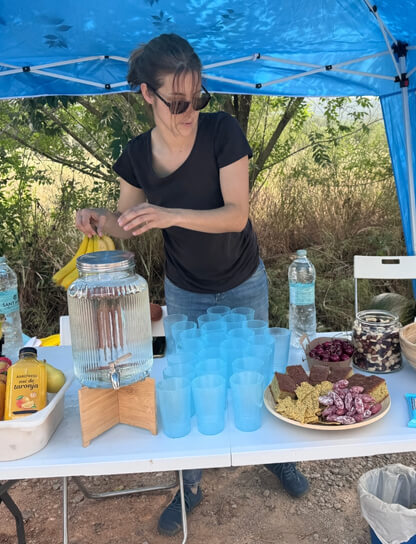
We organized a post-pickup snack to regain our strength.

Te escuchamos
Estamos listos para organizar una recogida de residuos en la naturaleza que se adapte a las necesidades de tu empresa, ayuntamiento o centro educativo.